
There are many ways for store owners to reduce the risk of employee theft and fraud. Background checks supplement interviews and screening questions on a job application. Manager training to know the signs and indicators that a worker may be engaging in theft activity of some sort is another preventative step. Electronic Article Surveillance systems and tags are helpful in deterring shoplifters and dishonest employees. Certainly Closed Circuit Television (CCTV), Public View monitors and mandatory package checks before leaving work all play a part in preventing internal criminal activity. One of the best tools an employer can use to reduce the chance they will even hire a thief in the first place is the use of pre-employment drug screening. The prospective employee would go to the lab, fill the cup and labs would send off the sample to have it checked for illegal substances. That has been the most common of the drug tests and many employers have relied on it to help them keep their stores profitable and safe.
Is this still an effective method for owners to use? With states loosening their own laws surrounding marijuana use it is a mixed bag. Not all states are legalizing it and it is still a federal crime to use, grow, distribute or possess it. So if you are in a state where it is still a crime to use marijuana and an applicant applies to a job with your company but he/she comes from a state where it has been “legalized” do you have them take a pre-employment drug test? What happens if they take the test and results show they use marijuana, do you not hire them even though it was “legal” where they came from? This can pose a dilemma for store owners. If you do hire them, do you put yourself at risk for discriminating against someone from your own state who failed and did not get hired based on that result?
Leaving the marijuana out of the equation for the moment, there is still room for drug testing in the workplace, both pre-screening and random drug testing of employees. Drug screening can identify other illegal substances in addition to marijuana. According to thebalancecareers.com, “A typical drug test for employment purposes screens for drugs including amphetamines, cocaine, marijuana, opiates, nicotine, and alcohol.” While you may decide to overlook positive results for marijuana you can still turn down applicants for the other drugs. States may be legalizing marijuana but the debates about the safety and effects of the drug on behavior remain a concern. Just because it is legal does not mean you necessarily want someone who uses this drug or any other drug working for your business. Pre-employment drug screening is still an effective tool in your efforts to combat theft and safety concerns.
Why test for drugs in the first place? By testing and screening out applicants who test positive you significantly reduce the risk of hiring someone who very well may steal from your store. It may be cash or merchandise but they have a habit to feed and they still have bills to pay and they are not going to feed that habit on a retail job. Working in the store gives them access to money and merchandise that will provide the resources for their addiction. Another reason to test is to keep your store safe. Someone who is illegally using drugs or coming to work under the influence of drugs or alcohol can be a cause of an accident or can be the victim of an injury in the workplace incurred while under the influence. Whether they cause the accident or are the victim of an accident, you can end up paying for it. There is also the safety of your other employees to consider. Someone under the influence of the wrong drugs can be unstable and volatile. What is it that is going to trigger a violent action on their part? Giving them a direction or task they don’t want to do? How about a customer that says something that sets off your employee. There is no place for violence or theft in the workplace and pre-employment drug screening can help prevent both from happening.

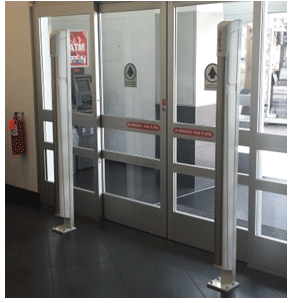


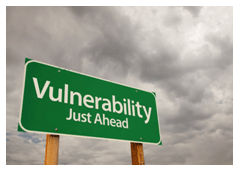 Have you ever noticed how we all anticipate a New Year will bring new and exciting things into our lives (or businesses) but after the first month we often realize that nothing is new or improved or better? In fact, we may be disappointed as the year progresses that problems we hoped would be resolved (read, “magically disappear”) are still there. We make resolutions at the beginning of the year that are meant to help “improve” or “fix” something we know is an opportunity but then we slide back into our routines and those “problems” don’t get any better.
Have you ever noticed how we all anticipate a New Year will bring new and exciting things into our lives (or businesses) but after the first month we often realize that nothing is new or improved or better? In fact, we may be disappointed as the year progresses that problems we hoped would be resolved (read, “magically disappear”) are still there. We make resolutions at the beginning of the year that are meant to help “improve” or “fix” something we know is an opportunity but then we slide back into our routines and those “problems” don’t get any better. Hiring employees is hard enough for retail owners without the pressures of hiring seasonal staff during the holidays as many stores are now doing. Under normal circumstances, managers and owners of retail businesses are stretched thin keeping a store operating efficiently. When turnover occurs more time is taken up as those managers are forced to focus their energies on filling holes in the weekly schedule. Job ads are posted and often paper applications are handed out as interested persons come in to respond to the ad or a “Help Wanted” sign posted in a window. Then there is the security risk that is involved in the hiring of new employees whether they are seasonal or to be a regular member of a team. A new hire carries an unknown quality and there is always the off chance that with even the best interview a criminal can slip between the cracks, the proverbial wolf in sheep’s clothing.
Hiring employees is hard enough for retail owners without the pressures of hiring seasonal staff during the holidays as many stores are now doing. Under normal circumstances, managers and owners of retail businesses are stretched thin keeping a store operating efficiently. When turnover occurs more time is taken up as those managers are forced to focus their energies on filling holes in the weekly schedule. Job ads are posted and often paper applications are handed out as interested persons come in to respond to the ad or a “Help Wanted” sign posted in a window. Then there is the security risk that is involved in the hiring of new employees whether they are seasonal or to be a regular member of a team. A new hire carries an unknown quality and there is always the off chance that with even the best interview a criminal can slip between the cracks, the proverbial wolf in sheep’s clothing.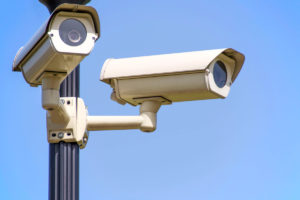 Now that fall is upon us it is getting darker earlier. These hours of darkness can bring unique challenges for retail owners. Have you ever considered that it is your responsibility to help keep customers and employees remain safe while they are on your property? It may make sense that you are responsible for employee safety but you are also obliged to help keep customers safe as well. This includes your parking lot and the exterior areas around the building. How do you do this? What do you have to protect against? Good questions and hopefully we can provide you with answers to those questions and suggestions to make your business safer.
Now that fall is upon us it is getting darker earlier. These hours of darkness can bring unique challenges for retail owners. Have you ever considered that it is your responsibility to help keep customers and employees remain safe while they are on your property? It may make sense that you are responsible for employee safety but you are also obliged to help keep customers safe as well. This includes your parking lot and the exterior areas around the building. How do you do this? What do you have to protect against? Good questions and hopefully we can provide you with answers to those questions and suggestions to make your business safer. We are excited to announce our partnership with Johnson Controls/Sensormatic. Sensormatic is one of the oldest and largest Electronic Article Surveillance (EAS) manufactures in the world. Loss Prevention Systems has deep loss prevention and EAS experience.
We are excited to announce our partnership with Johnson Controls/Sensormatic. Sensormatic is one of the oldest and largest Electronic Article Surveillance (EAS) manufactures in the world. Loss Prevention Systems has deep loss prevention and EAS experience.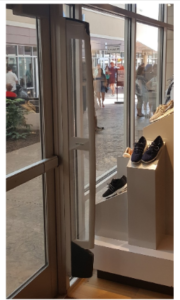 Pricing is also a factor. Sensormatic line of systems will fit a wide range of budgets depending on the features you select. We also have people counting, and data reporting. This gives the Retailer important intelligence on customer traffic and flow. We have seen many of our customer’s significantly reduce expenses in both payroll and operating costs by having this data. Store hours can be adjusted and you can adjust staffing to fit the real world.
Pricing is also a factor. Sensormatic line of systems will fit a wide range of budgets depending on the features you select. We also have people counting, and data reporting. This gives the Retailer important intelligence on customer traffic and flow. We have seen many of our customer’s significantly reduce expenses in both payroll and operating costs by having this data. Store hours can be adjusted and you can adjust staffing to fit the real world. 
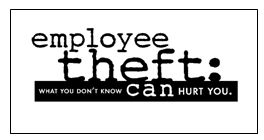

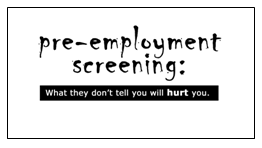
 National retail chain stores often rely on a management team to handle all of the daily operations of a business. These positions vary from company to company but depending on the size and sales volume of that retailer there are different managers to oversee diverse functions. There may be soft lines and hardlines department managers, a freight manager, Human Resource Manager and a store manager. Some stores might only have a sales floor manager, freight manager, and a store manager who also functions as the human resources manager. For an independent business owner, these sub-managers might be a luxury that is not affordable to them. That means it is up to the store manager to oversee all store functions and if an employee calls out that may be one more job the manager fills for a day. This takes me back to an old saying I have heard, “Work smarter, not harder”. It is not possible for a store owner or a single manager to effectively perform all of the tasks associated with running a store every single day. Finding ways to lighten the load and improve efficiency can make life much better for a retail owner.
National retail chain stores often rely on a management team to handle all of the daily operations of a business. These positions vary from company to company but depending on the size and sales volume of that retailer there are different managers to oversee diverse functions. There may be soft lines and hardlines department managers, a freight manager, Human Resource Manager and a store manager. Some stores might only have a sales floor manager, freight manager, and a store manager who also functions as the human resources manager. For an independent business owner, these sub-managers might be a luxury that is not affordable to them. That means it is up to the store manager to oversee all store functions and if an employee calls out that may be one more job the manager fills for a day. This takes me back to an old saying I have heard, “Work smarter, not harder”. It is not possible for a store owner or a single manager to effectively perform all of the tasks associated with running a store every single day. Finding ways to lighten the load and improve efficiency can make life much better for a retail owner.